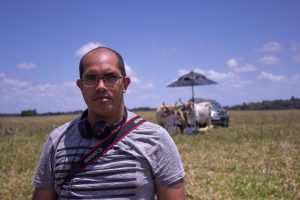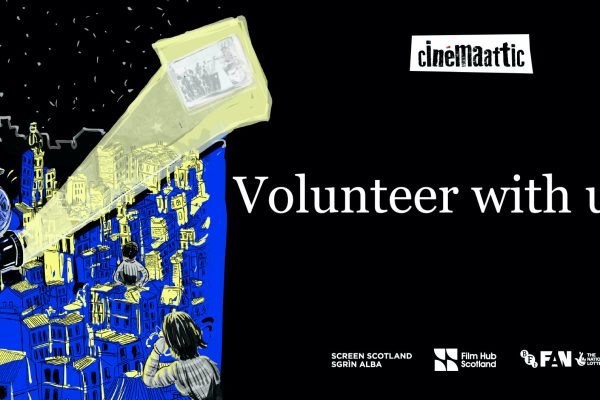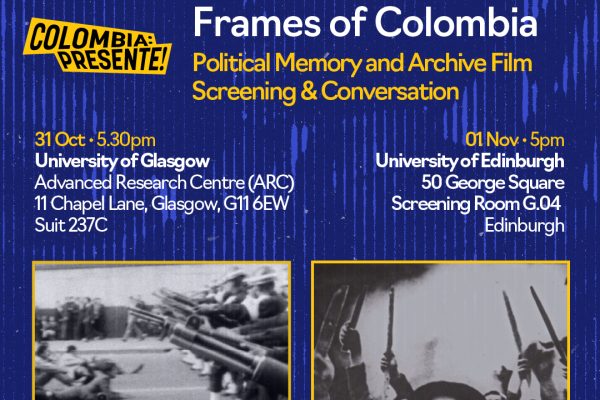
INTERVIEW WITH DANIEL BANDEIRA BY JULIO CAVANI
Julio Cavani: In what socioeconomic context does the story told by the film take place, and how does this affect the behavior of the characters?
Daniel Bandeira: The context of “Property” in Brazil is pretty much the same today: contemporary on the surface, but still profoundly reactionary in its structure. Ancient codes govern our labor, race, and class relations. They are so ingrained in our society that we act based on assumptions: the rich fear the resentment of the poor, and the poor fear the abuse of power by the rich. This is how fear and violence continue to rule our society.
JC: How does the racial factor interfere with the plot unfolding, and how was this thought out in the casting?
DB: Brazil has a wide range of skin tones, and each combination represents a complex set of histories and interrelationships. Non-white skin, causes anxiety — a silent fear that the long-repressed upheaval will erupt in violence. The various shades of dark skin in Property tell a long history of ethnic confluence that eventually formed the identity of the working class: non-white hands are associated with labor and subservience, which causes astonishment when used for defense or to express discontent. Much of this history of exclusion was experienced firsthand by cast members, who brought their perspectives to the film
JC: During the production process, what was the scenario in Brazil regarding the support of film productions? What was favorable and unfavourable?
DB: Brazil was going through a difficult election season at the time of the shoot. We were keeping an eye on the news while we were shooting, and the election of a disastrous far-right government that was opposed to social, cultural, and scientific programs happened on the same day as our last day of filming. The COVID-19 pandemic exacerbated four years of intense societal unrest. “Property” was concealed during that time and now appears as Brazil is reopening to the rest of the world and recalling its historical debts.
JC: Aesthetically, does the film seek a realistic, explicit, rawness, or Does it make more poetical choices?
DB: Violence, in its various degrees, is one of the basic tools of genre films. It is part of its appeal to the audience and its strategy to generate a response from them. If violence can be used to desensitise the spectator, in “Property” we attempt to aggravate an open wound that needs to be treated in some way. When it comes to portraying violence, every act has been thought through thoroughly.
This interview is courtesy of Loco Films.
***
SCREENINGS INFORMATION
@CCA (Centre for Contemporary Arts – Sat 20 April – Doors open at 19:30, screening starts at 20:00
@St. Peter’s Church Hall, Edinburgh – Sat 27 April – Doors open at 19:30pm, screening starts at 20:00
***
PROPERTY / PROPRIEDADE
Daniel Bandeira | Brazil | 2022| 101’
Logline: When rebelling workers occupy Teresa’s family estate, she flees at the last minute into her armored car. She is trapped but refuses to negotiate. A thriller where two universes are about to collide.
Synopsis: Ever since she was the victim of a hostage situation, Teresa has lived in seclusion in her townhouse. She is clearly still so distressed that she can even only bear to watch her beloved dog through the window of her veranda. When she decides to go to her family’s country estate to recuperate, her husband Roberto buys her a state-of-the-art armoured car to make her feel safer. However, shortly after they arrive, the farm’s workers – who are to be dismissed after years of exploitation – occupy the estate house at gunpoint. While Roberto is taken hostage, Teresa manages to escape to the safety of the car at the last minute. But she cannot start the vehicle and is trapped. Shots are heard more and more often, and the prospect of negotiations dissolves into blood.
PROPERTY is the second feature film written and directed by Daniel Bandeira. Cinematography by Pedro Sotero (“Bacurau”, “Aquarius”, “Gabriel and the Mountain”), production design by Maíra Mesquita (“Corpo Elétrico”, “Boi Neon”, “Periscópio”) and editing by Matheus Farias (“Uninhabitable”, “Caranguejo Rei”). The film stars Malu Galli (“Além da Ilusão”, “O Xangô de Baker Street”) and Zuleika Ferreira (“Baile Perfumado”). Also in the cast are Tavinho Teixeira (“Batguano” and “Sol Alegria”) and Samuel Santos, founder of “O Poste”, a black theater group from Recife.
Trailer:
Festivals & Awards
Berlinale – Panorama Section 2023
Reims Polar – Official Competition
Istanbul Film Festival – Mined Zone Competition
Fantastic Fest Austin – Best Feature Award
Biarritz Latin American Film Festival – Official Competition
Sitges International Fantastic Film Festival – Orbita Competition
Brooklyn Horror Festival – Best Film Award
Kaohsiung Film Festival – Panorama Competition
Leiden Film Festival – Bonkers! Competition
Festival De Huelva – Cine Ibero Americano
Paris International Fantastic Film
***
Brasil: A Slow Film Festival is organized by CinemaAttic and Supported by the Consulate General of Brazil in Edinburgh, The Guimarães Rosa Institute and Screen Scotland.
Interview: ©Loco Films and Julio Cavani







